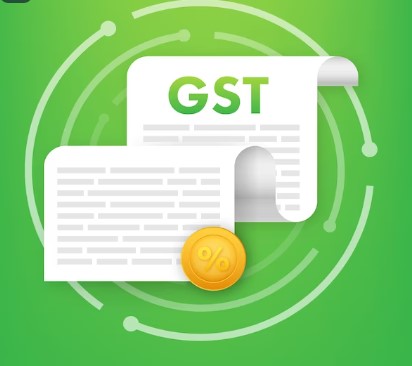
it's pocket friendly

it's hassle free

it's instant

it's completely online


it's pocket friendly

it's hassle free

it's instant

it's completely online
All Inclusive Transparent Pricing #NoHiddenCharges
This pricing plan includes free consultation
Fill inquiry form below to pay later
This pricing plan includes free consultation
Fill inquiry form below to pay later
This pricing plan includes free consultation
Fill inquiry form below to pay later
This pricing plan includes free consultation
Fill inquiry form below to pay later
GSTR-1 is a monthly or quarterly return that businesses registered under the Goods and Services Tax (GST) regime in India are required to file. It contains details of all outward supplies made by the taxpayer during a specific period. This return needs to be filed by the 10th, 11th, or 13th of the subsequent month or quarter, depending on the taxpayer’s turnover.
Importance of GSTR-1 Filing:
Legal Requirement: It is a legal requirement under GST law for registered taxpayers to furnish details of their outward supplies in GSTR-1. Non-compliance may lead to penalties and legal consequences.
Input Tax Credit (ITC): The details submitted in GSTR-1 are used by the recipient to claim input tax credit on the taxes paid on their purchases. Timely and accurate filing of GSTR-1 ensures seamless availability of ITC to the recipient.
Transparency and Compliance: GSTR-1 promotes transparency in business transactions and assists in maintaining compliance with GST regulations. It helps in verifying the accuracy of information between the supplier and recipient.
Data Validation and Rectification: Filing GSTR-1 facilitates the reconciliation of data between suppliers and recipients. Any discrepancies or errors in reporting can be rectified in subsequent returns.
Avoidance of Penalties: The timely filing of GSTR-1 helps in avoiding penalties and late fees imposed by the GST authorities for non-compliance or delayed filing.
Yes, filing GSTR-1 is mandatory for businesses registered under the Goods and Services Tax (GST) regime in India. As per GST regulations, all registered taxpayers are required to submit details of their outward supplies, including sales and transactions, in GSTR-1. This return needs to be filed regularly, either monthly or quarterly, based on the taxpayer’s turnover, by the specified due dates.
Non-compliance with GSTR-1 filing requirements can lead to penalties and legal consequences under the GST laws. Therefore, it is crucial for businesses to adhere to the prescribed deadlines and accurately report their outward supplies in GSTR-1 to maintain compliance with GST regulations and avoid penalties.
General Documents / Informations Required from all assessees:
Invoice Details: Maintain records of all invoices issued for outward supplies during the tax period. This includes serially numbered invoices, date of issue, customer details (if applicable), goods/services description, HSN/SAC codes, quantity, taxable value, and taxes charged (IGST, CGST, SGST/UTGST).
Credit/Debit Notes: Record details of credit or debit notes issued during the tax period, specifying the reason, serial number, date of issue, recipient details, taxable value, and taxes adjusted.
Export Details: For export transactions, maintain records of shipping bills, invoices, and other export-related documents to accurately report zero-rated supplies in GSTR-1.
B2B and B2C Supplies: Differentiate between supplies made to registered (B2B) and unregistered (B2C) persons and maintain separate records for both categories.
HSN/SAC Codes: Ensure proper classification of goods or services using Harmonized System of Nomenclature (HSN) or Service Accounting Code (SAC) for accurate reporting in GSTR-1.
Additional Details: Keep records of any advances received, details of supplies made to composition dealers, and goods sent on approval or returnable basis.
While these documents might not need to be physically attached during the online filing process of GSTR-1, having accurate records and information is crucial. The details from these documents are required to be accurately reported in the GSTR-1 return.
It’s recommended that businesses maintain proper records and documentation to support the details furnished in GSTR-1 as they may be subject to audit or verification by tax authorities. accurate filing helps in claiming Input Tax Credit (ITC) for recipients and ensures compliance with GST regulations.
Yes, GSTR-1 filings in India have specific due dates based on the turnover of the taxpayer. These due dates are prescribed by the Goods and Services Tax Network (GSTN) and are subject to periodic changes. Generally, the due dates for filing GSTR-1 are as follows:
Monthly Filers: Taxpayers with an aggregate turnover exceeding a specified limit (commonly set at Rs. 1.5 crore) in the preceding financial year need to file GSTR-1 monthly. The due date for monthly filers is typically the 11th of the following month. For example, the GSTR-1 for October is due by November 11th.
Quarterly Filers: Taxpayers with an aggregate turnover up to the specified limit have the option to file GSTR-1 quarterly. The due date for quarterly filers is usually the 13th of the month following the end of the quarter. For instance, the GSTR-1 for the quarter ending in September is due by October 13th.
It’s crucial for businesses to adhere to these due dates to avoid late fees and penalties imposed by the GST authorities. Late filing of GSTR-1 can result in penalties and can also hinder the recipient’s ability to claim Input Tax Credit (ITC) for the taxes paid on their purchases. Therefore, maintaining compliance with the prescribed due dates is essential for businesses registered under the Goods and Services Tax (GST) regime in India.
GSTR-1 is a monthly or quarterly return that businesses registered under the Goods and Services Tax (GST) regime in India need to file. It contains details of outward supplies of goods or services made by the taxpayer during a specific period.
All registered taxpayers under GST, including regular taxpayers and those under the composition scheme, are required to file GSTR-1. The frequency of filing (monthly or quarterly) depends on the taxpayer’s turnover.
GSTR-1 filing requires details such as invoice-wise details of outward supplies, including invoices issued, credit/debit notes, HSN/SAC codes, export-related information, and more.
The due date for filing GSTR-1 varies based on the turnover of the taxpayer. Monthly filers usually have a due date around the 11th of the following month, while quarterly filers have a due date around the 13th of the month following the quarter.
Non-filing or late filing of GSTR-1 can attract penalties and late fees. It may also affect the recipient’s ability to claim Input Tax Credit (ITC) on purchases.
Yes, amendments can be made in subsequent GSTR-1 returns to rectify any errors or omissions made in the original filing. These corrections can be done in the next month’s or quarter’s return.
Yes, GSTR-1 filing is done online through the GSTN portal in a specified format provided by the Goods and Services Tax Network (GSTN).
Inaccuracies in GSTR-1 filing might lead to reconciliation issues between suppliers and recipients, affecting Input Tax Credit (ITC) claims and potentially triggering audits or penalties by the tax authorities.
Note – In case you are not able to fill this form contact @ 91-9871023251
